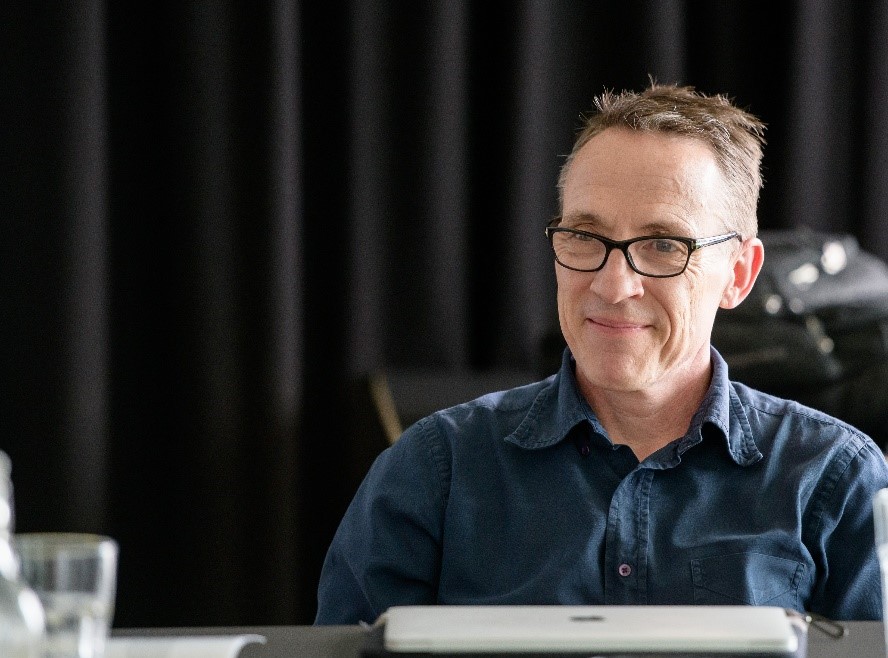LIVE – ONLINE WEBINAR SERIES
Next dates : Module 1 starts 4th March 2025
A course dedicated to the nature and craft of storytelling to help Writers, Script Editors, Story Editors and Executive Producers improve their development and writing skills
John Yorke has been behind some of the biggest hits in television (Inc. Wolf Hall, Shameless, Life on Mars) and has distilled that knowledge into a detailed step by step course for both Writers and Executives
Over three modules with group and interactive exercises, we will explore technique, structure and theory, as well as the methodology to transform knowledge into concrete application for writing, structuring and developing
hit TV dramas
COURSE OUTLINE
MODULE 1
Structure & Story Rules
4th, 5th, 6th March 2025
Course Topics:
– Structural rules of storytelling formats
– Essential ingredients of story and its application to Scripted TV
– Relationship between structure and change and Fixing a broken script
MODULE 2
Character
11th, 12th, 13th March 2025
Course Topics:
– Character: creating interesting characters and the relationship with structure
– Dialogue: creating subtext and managing exposition
– Dramatic Irony, Tragic Irony, Foreshadow, retardation
MODULE 3
Multiprotagonism
18th, 19th, 20th March 2025
Course Topics:
– Multiprotagonism: the rules and how to manage structure
– The art of compelling narrative: suspense and surprise
– Final Exercise
Who is this for?
Writers, Script Editors, Story Editors, Development Executives, Executive Producers, Commissioners
Fee:
£800 per participant (VAT applied if applicable)
Get 20% off with promo : JYNSW
Expires : 18th February 2025
Venue:
LIVE on Zoom
Time:
Morning Sessions : 11am – 12:30pm UK time
Afternoon Sessions : 3:30pm – 5pm UK time
Please review our Terms and Conditions, which includes advice about our Data Protection and Privacy Policy.
For more details contact: inshaaf@mediaxchange.com
All Online Programmes will be conducted in English
Julian Fellowes
Creator of DOWNTON ABBEY
“Probably the most accessible, inspiring take on story that I’ve attended. We came home with a clearer and deeper understanding of our work, and with a common set of vocabulary, which is key to good teamwork.”
THOMAS GIERTSEN
FOUNDER, FEELGOOD
NORWAY



